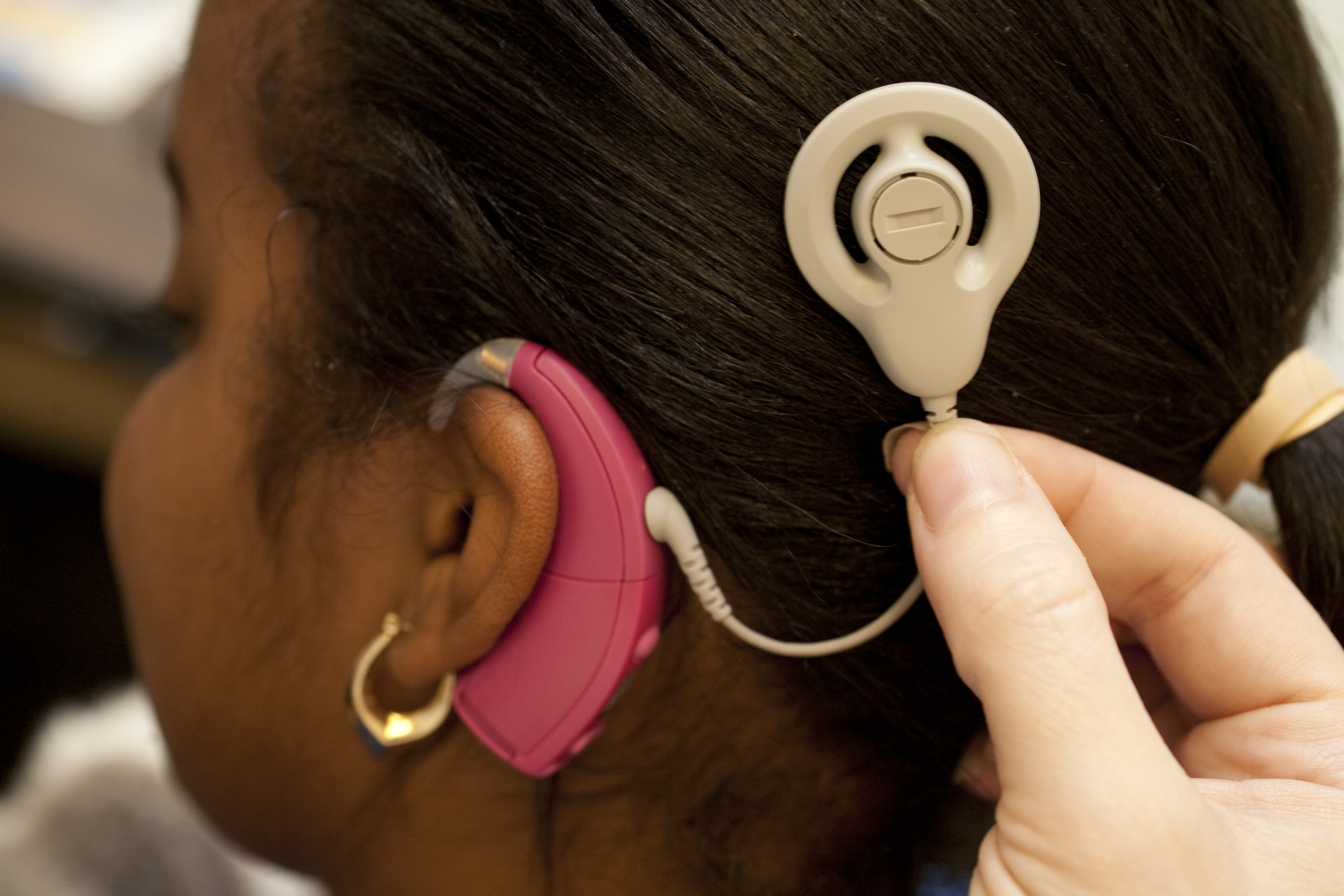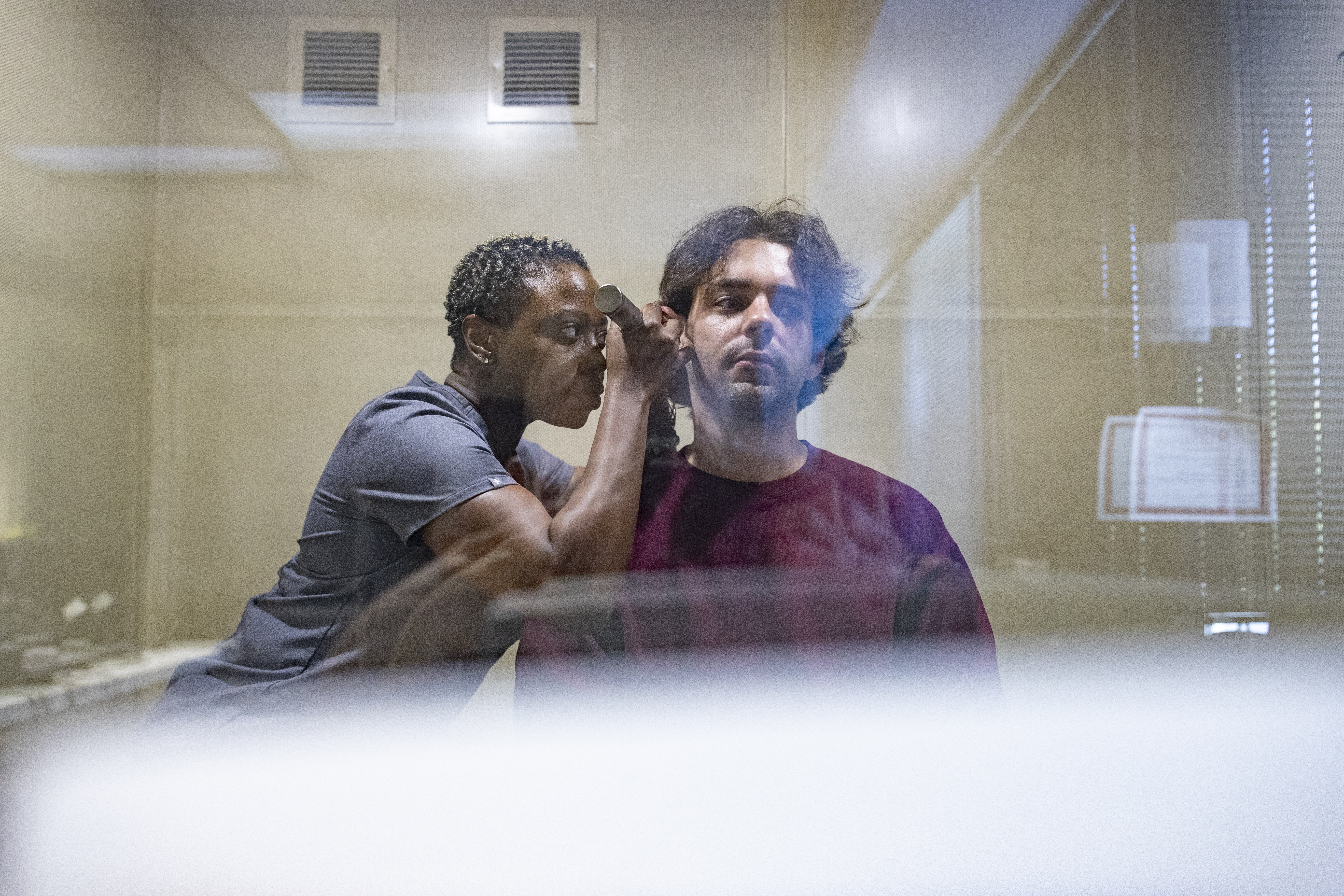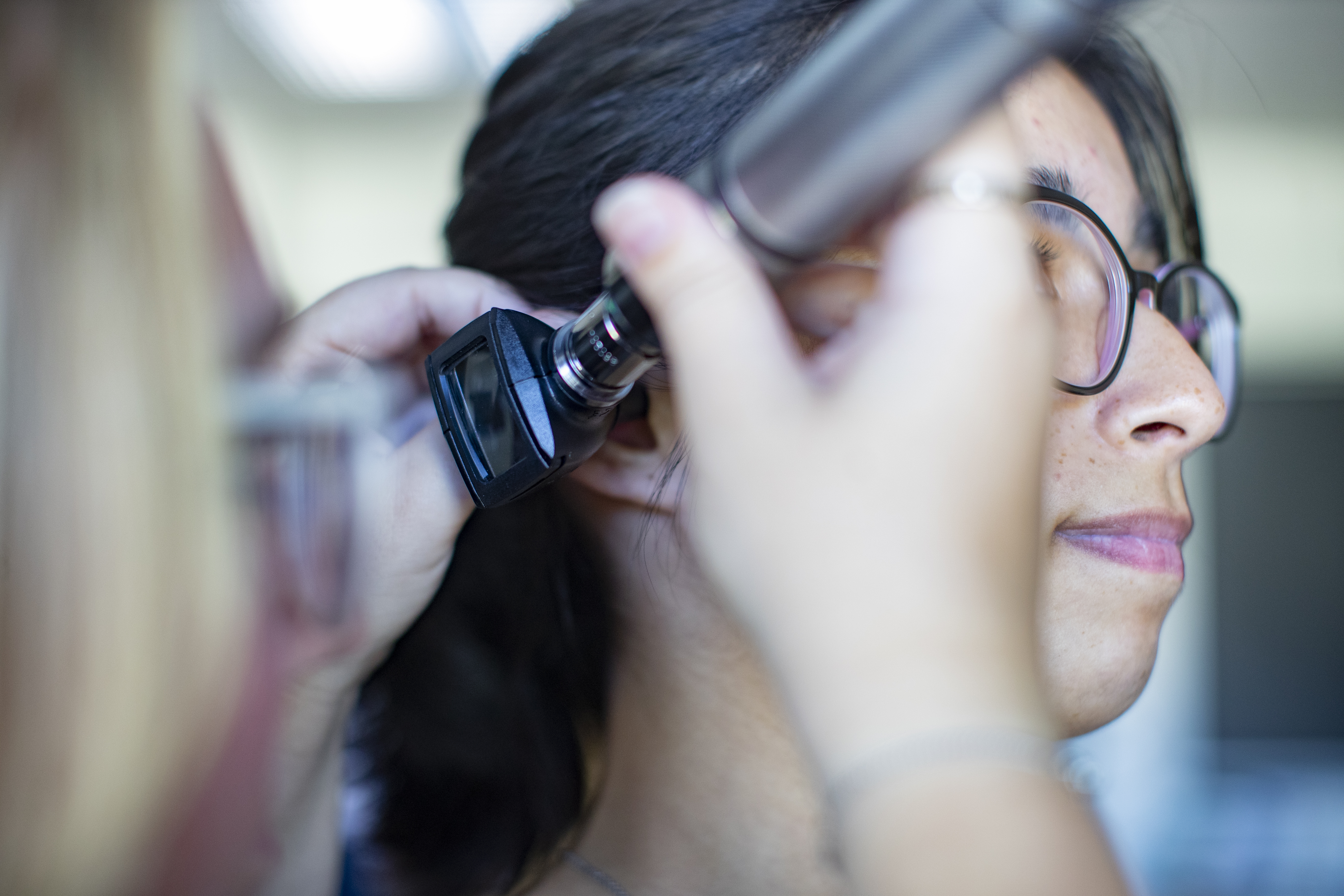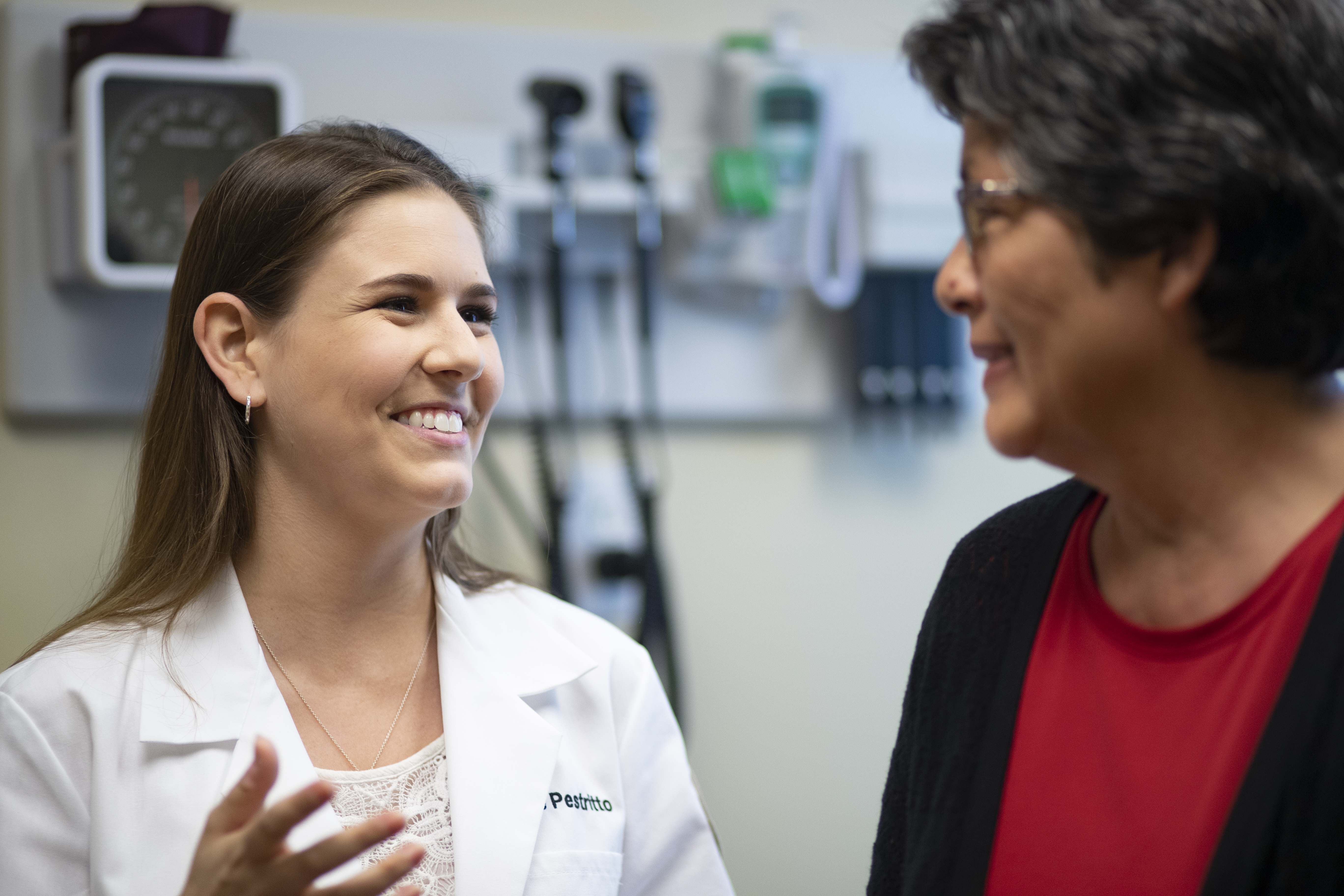All Things Cochlear Implant: Q&A with an Audiologist
 February 25th marks International Cochlear Implant Day, making it a great time to spread awareness about the hearing assistance these incredible devices can provide. We talked to the lead audiologist at the Pennsylvania Ear Institute, Rebecca Blaha, AuD, about everything cochlear implant-related, including how they work and whether they might be a good fit for someone with hearing loss.
February 25th marks International Cochlear Implant Day, making it a great time to spread awareness about the hearing assistance these incredible devices can provide. We talked to the lead audiologist at the Pennsylvania Ear Institute, Rebecca Blaha, AuD, about everything cochlear implant-related, including how they work and whether they might be a good fit for someone with hearing loss.
If it's a child, they can provide an implant as young as six months of age because their system is still new. They will adapt to that as their only sensation of sound and the brain will be coded to that message from the beginning. If you are very young and have not learned any speech and language, you’re a good candidate. If you’re an adult who has developed speech and language and has been able to use some form of amplification, you’re also a candidate.
 We would evaluate your hearing first to see the severity of your hearing loss because there is a guideline—it's called the 60/60 rule—that most implant manufacturers and experts have agreed upon. We’re looking at your sensitivity, we’re presenting a tone to you and we’re waiting for a response and looking at the lowest level that you were able to respond to.
We would evaluate your hearing first to see the severity of your hearing loss because there is a guideline—it's called the 60/60 rule—that most implant manufacturers and experts have agreed upon. We’re looking at your sensitivity, we’re presenting a tone to you and we’re waiting for a response and looking at the lowest level that you were able to respond to.
If your hearing level is around 60 decibels or worse, then we’re going to start saying you have a severity that may not be optimally assisted with a traditional acoustic hearing aid. Then we will start looking at the severity of your hearing thresholds—we’re going to present speech to you and see how much of that speech you can repeat back. We’re looking to see if you are getting 60% or more accurate responses.
If you’re less than 60%, we will conduct some assessments with a hearing device. Most clinical facilities have some device, a hearing aid, that they can fit to you during the appointment. We’re looking at the percent of accuracy using the amplification—if the device is appropriately fit to your hearing needs, do you show a significant improvement or do you still struggle to understand any sound that it provides? We’re looking at the percentage of full words that you can repeat or how many sounds of the individual words were accurately repeated. We’re also giving you sentence tests, where we’re asking you to repeat the sentence and see how many words you get correct. Then we add a little background noise to see if you’re in a more typical listening environment and there’s something to distract you, how well do you have the ability to find the voice in the presence of that distraction? We’re looking at all these different factors to see if you’re doing fairly well on these tests with a traditional hearing aid, maybe you are a good candidate to continue with a traditional hearing aid—a nonsurgical intervention. But, if you still have significant difficulties doing any of the tasks, the traditional method of amplification is not really going to assist you. Then, we’re going to consider that the [cochlear] implant would be more efficient and we would refer you for a surgical consult.
Even if you are qualified auditorily by our testing, you still have to meet the criteria physically. A physician determines if you would be a good candidate to go through a surgical procedure. They consider if you have the appropriate ear anatomy. If you have all of the complete turns of the cochlea so that the electrodes would fit, nerve survival, if you would heal properly from surgery, etc. They will go over that and if you are approved, then they’ll do the surgery. It’s usually a fairly short surgery, I think around two hours, if not less. After maybe two to three weeks of healing, your processor would be activated and we would start stimulating.
 Generally, they want to know what amount of improvement they should expect after they’re implanted, and that's hard to quantify. When you are evaluated, it should be a team approach, so your audiologist would qualify you based on your hearing level, but there should also be a discussion of what your expectations and motivations are and the level of familial support.
Generally, they want to know what amount of improvement they should expect after they’re implanted, and that's hard to quantify. When you are evaluated, it should be a team approach, so your audiologist would qualify you based on your hearing level, but there should also be a discussion of what your expectations and motivations are and the level of familial support.
- Do you have a good core network in place to help you go through this process of adaptation and training?
- You may find that you need speech assistance to help train you to utilize the information, so a speech pathologist might be someone you might want to consult with to develop your auditory skills.
 Within the first three months we see the biggest improvement in overall hearing abilities. So in the first three months you’ll go back with your provider for mapping, as we would call it, to figure out how we want to stimulate along the electrode array and to get the current levels optimized. The biggest improvement that most people get is in the first three months, and then by six months you’re pretty solidly established with the routine of use. The sound quality seems to be normalizing and your ability to repeat speech has been optimized for the majority of patients.
Within the first three months we see the biggest improvement in overall hearing abilities. So in the first three months you’ll go back with your provider for mapping, as we would call it, to figure out how we want to stimulate along the electrode array and to get the current levels optimized. The biggest improvement that most people get is in the first three months, and then by six months you’re pretty solidly established with the routine of use. The sound quality seems to be normalizing and your ability to repeat speech has been optimized for the majority of patients.